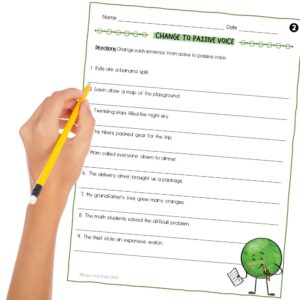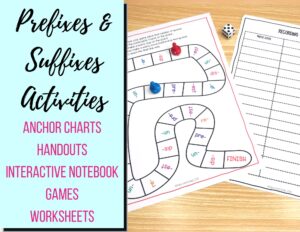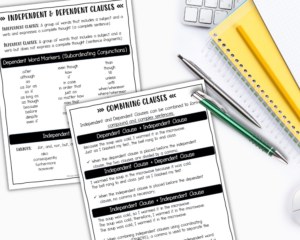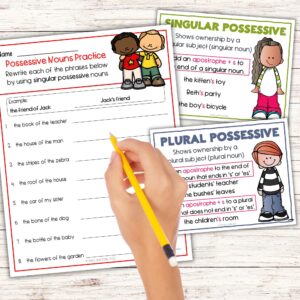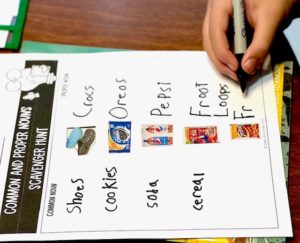
The Never-Ending Workload
There used to be very few days during the week where I didn’t come home exhausted and craving a nap. I’d stare at my bag filled with work for the night and realize I’d be up late…again!
And on top of the papers to grade, emails to return, and lessons to plan that night, I had just put in a full day teaching dozens of tiny humans with no breaks or down-time. My nerves were shattered, and my energy was depleted.
There didn’t seem to be any option, though. I owed it to my students to give them the best of me I could, and that meant putting in the time to plan effective instruction while still staying on top of all the other duties that came along with the job. The problem was, I didn’t know how long I could last.
I really need more to get it all done–more time. more hands, and just more of me, in general. But, unfortunately, the only “more” in my life was the amount of work being added to my plate each week.
Can you relate?

The Shift
Earlier in my career I thought if I didn’t come up with the idea, plan it, and create it, I was somehow not as good as I could be. Or, God forbid, not as good as the teacher next door. I seemed to spend every waking hour in teacher mode, even to the point of being distracted during my son’s sporting events. I wore my exhaustion and workload like a badge of honor for so long that I felt guilty when I wasn’t working. After all, administrators seemed to love those teachers who came in early and left after dark, so feeling this way must be a good thing, right?
Wrong! I could feel myself heading towards teacher burn-out fast. It was a constant struggle to balance my family and job, and it never seemed I was doing either very well anymore. I was so tired all the time that I couldn’t seem to find the energy to “turn on” in the classroom each day. I gave what I could, but I didn’t have more in me.
It wasn’t until I embraced the idea that being good at my job didn’t mean I had to shoulder all of the burdens myself. In fact, in my effort to do it all I was beginning to perform worse than I had in the past. Add being disappointment in a day’s lessons to the exhaustion I carried and you have a recipe for disaster.
I took time to reflect on The balance I thought I couldn’t find began to slowly creep back into my life. A small shift in perspective caused a big improvement in my stress levels, and, surprisingly, my effectiveness in the classroom.

Three Ways I Lowered My Teacher Stress:
1. Peer Collaboration
I began to seek out the ideas of other teachers on my campus and collaborate on projects. It wasn’t that I was a hermit before this. I was social with a lot of my co-workers. But there is a difference in “talking” about what could happen in our lessons and actually “planning” those ideas together. The greatest thinkers and leaders of our times have gotten to where they are through collaboration. It shouldn’t be any different for teachers. Find your tribe!
2. Parent Help
I avoided this step for a long time. I worried that it was going to be extra work; that parents would become too involved; that I was somehow asking too much of them. I was wrong! Parents can be one of your biggest assets! Find those moms who love nothing more than cutting out and laminating materials, planning and running parties, making copies, etc. Hand off the smaller tasks to someone excited to do them. Save your energy for your students.
3. Pre-Made Materials and Lessons
I started incorporating ideas I saw online and found good resources and lessons to buy to supplement (or even replace) my own plans. I know some administrators don’t welcome this idea with open arms. In fact, I had one principal who wasn’t shy about making derogatory comments about buying materials online. What did I do? I just kept my mouth shut about what I did. And my students didn’t suffer! At all! In fact, I now had the time and energy to focus on what really mattered–teaching my students. I began to see more growth in my class than I had in the past. I could devote my time to adapting lessons and materials to meet the needs of my students instead of spending every minute developing the materials myself.
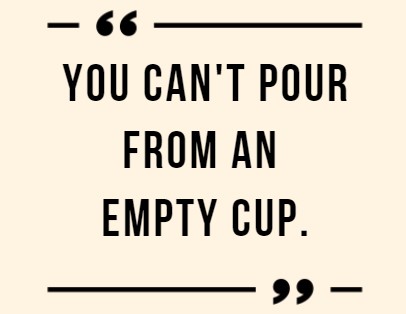
Let Go of the Guilt
As teachers, we often get the subtle, if not overt, message that teaching is a sacrifice. “Good” teachers come in early and stay late. They create and plan new lessons every year with this new group of students in mind. If you care about the kids you work tirelessly after school and on weekends. “Good” teachers give up personal family time for their “school family”. Any less is shirking our responsibility as educators.
Does this happen on occasion? Yes. Should it happen all the time? Absolutely not!
Don’t let anyone guilt you into giving more of yourself than is healthy. Find ways to share the work so you and your students reap the benefits. A tired teacher is never at her best.
And if you ever experience those moments of self-doubt or guilt for using the lesson from the teacher next door, let it go! When you find your next great activity through Pinterest or Instagram, enjoy the time it saved you. When you buy that perfect resource from Teachers pay Teachers, trust yourself to know you made the right choice for you and your students. Life is too short, and the students are too important, to show up every day with an “empty cup”.


